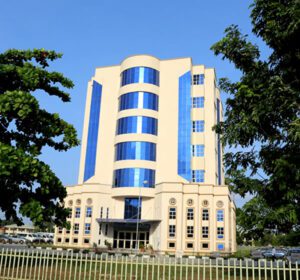Nigerian University rankings have become a vital tool for students, parents, and academic institutions across the world. In Nigeria, these rankings help to highlight the best-performing institutions, offering insight into academic standards, infrastructure, and the employability of graduates.
In this article you will find out the ranking criteria of Nigerian Universities, the top ranking universities in Nigeria and why Covenant University were able to obtain the No 1. position. Ensure to read the article to the end, feel free to use the table of contents to skip to the sub-heading you want.
Rankings serve as a benchmark for prospective students in choosing where to study, for educators in assessing performance, and for policymakers in shaping educational reforms. Nigerian university rankings are influenced by various factors, including academic quality, research output, global reputation, and student services.
Criteria for Ranking Nigerian Universities

Nigerian university rankings are based on multiple factors that collectively measure the quality of education, research, and institutional performance. Some of the common criteria used in these rankings include:
- Academic Reputation and Research Output: The quality and quantity of research publications, citations, and academic staff performance play a significant role in rankings.
- Student-to-Staff Ratio: A lower ratio indicates more personalized attention to students and better learning outcomes.
- Employer Reputation and Alumni Success: How employers rate graduates from a university impacts its ranking. Universities with notable alumni and high employability rates tend to perform better.
- Quality of Infrastructure and Facilities: Modern libraries, laboratories, and student services contribute to the overall ranking.
- Graduate Employability: The employability of graduates and their ability to secure jobs in relevant fields is crucial.
- Global and National Ranking Bodies: Methodologies used by platforms such as QS World Rankings, Times Higher Education (THE), and Webometrics vary, but they all contribute to how Nigerian universities are perceived locally and internationally.
Top-Ranked Universities in Nigeria (2024 Edition)
As of 2024, the leading Nigerian universities continue to set benchmarks in academic excellence, research, and student satisfaction. Some of the top-ranked universities include:
- Covenant University: A top-ranking private university, noted for its high graduate employability and quality infrastructure.
- University of Ibadan (UI): Known for its strong research output and academic reputation, UI remains one of Nigeria’s best institutions.
- Obafemi Awolowo University (OAU): Recognized for its cultural heritage and strong academic programs, especially in the arts and sciences.
- University of Lagos (UNILAG): A hub for academic excellence in law, engineering, and social sciences.
- Ahmadu Bello University (ABU): A leader in science, technology, and agriculture studies.
- University of Nigeria, Nsukka (UNN): A prestigious institution with significant contributions to research and higher education in Nigeria.
Historical Trends in Nigerian University Rankings

Over the past decade, Nigerian universities have seen shifts in their rankings, often driven by factors such as government policy changes, infrastructural development, and improvements in academic research. Historically, universities like UI and OAU have maintained high positions due to their long-established academic traditions.
However, private universities like Covenant University have risen quickly in recent years due to better funding, innovative academic programs, and a focus on technology-driven education. The rise of these private institutions has increased competition within the Nigerian higher education system.
Comparing Nigerian Universities on Global Ranking Platforms
Nigerian universities are ranked by various global bodies, each with distinct methodologies:
- QS World University Rankings: Nigerian universities often lag in QS rankings due to factors like limited international collaborations and research visibility.
- Times Higher Education (THE) Rankings: THE rankings focus on research, teaching, and international outlook. Nigerian universities have made progress but still face challenges in research citations and global partnerships.
- Webometrics Ranking: This ranking, which focuses on web presence and impact, shows improvement for Nigerian universities, particularly those embracing digital learning and online visibility.
While Nigerian universities may not frequently top global rankings, institutions like UI, UNILAG, and Covenant University have consistently performed well on these platforms.
Regional Disparities in Nigerian University Rankings

There are noticeable disparities in the performance of universities across Nigeria’s regions. Universities in southern Nigeria, like UI, UNILAG, and OAU, generally perform better in national and global rankings than those in the northern region. This disparity is partly due to differences in funding, access to resources, and historical development. Northern universities such as Ahmadu Bello University (ABU) face challenges related to infrastructure, staff shortages, and security issues, which affect their overall performance in rankings.
Additionally, state universities often struggle to compete with federal universities due to lower funding and fewer research opportunities. This has widened the gap between institutions, especially in regions with less governmental and private-sector support.
For more information on UNILAG admission 2024 check here. Informations on UI admission is also available here
Impact of Funding on University Rankings
Funding plays a critical role in determining a university’s performance in rankings. Well-funded universities, whether through government allocations, private endowments, or alumni donations, are better equipped to attract top-tier faculty, improve infrastructure, and support cutting-edge research. Federal universities in Nigeria often receive more funding than state universities, giving them an advantage in maintaining or improving their rankings.
Private universities like Covenant University and Babcock University have an edge due to significant private funding, allowing them to invest in modern facilities, technology, and faculty development, all of which contribute to their upward mobility in rankings.
Private vs Public Universities in Nigerian Rankings
In recent years, private universities in Nigeria have climbed the rankings rapidly, driven by better infrastructure, focused leadership, and strong academic programs. Institutions like Covenant University and Afe Babalola University are among the highest-ranked private universities, performing better than many public universities in terms of graduate employability, student satisfaction, and infrastructure.
Public universities, particularly federal institutions like UI and UNILAG, still dominate in terms of research output and academic reputation. However, challenges like funding cuts, strikes, and overcrowding often hinder their performance in global rankings.
Challenges Facing Nigerian Universities in Global Rankings
Several factors limit the ability of Nigerian universities to perform better in global rankings:
- Research Funding and Infrastructure: Many Nigerian universities lack the necessary funding and infrastructure to conduct world-class research. This affects their ability to publish in high-impact journals.
- Brain Drain: The emigration of talented faculty members to better-paying positions abroad (brain drain) undermines the quality of education and research at Nigerian institutions.
- Limited International Collaborations: Partnerships with international institutions are crucial for research funding, student exchange programs, and global visibility, which Nigerian universities often lack.
The Role of Technology and Innovation in Improving Rankings

Technology is increasingly playing a role in how Nigerian universities improve their rankings. With the rise of digital learning platforms, many institutions are making strides in offering online courses and utilizing technology to enhance teaching and research. Initiatives like the use of e-libraries, online research databases, and MOOCs (Massive Open Online Courses) have allowed universities to increase accessibility and global reach.
For instance, Covenant University has been a trailblazer in implementing tech-driven solutions for academic and administrative processes, which contributes to its steady rise in rankings.
Strategies for Nigerian Universities to Improve Their Rankings
To improve their standing, Nigerian universities should focus on:
- Enhancing Research Output: Investing in research grants, fostering academic collaborations, and encouraging publications in high-impact journals.
- Strengthening International Partnerships: Partnering with global universities for joint research, faculty exchange programs, and student mobility initiatives.
- Improving Infrastructure: Upgrading facilities, laboratories, and campus amenities to provide a conducive environment for learning and research.
- Attracting and Retaining Talent: Addressing brain drain by offering competitive salaries, better working conditions, and research opportunities for academic staff.
- Transparency and Accountability: Streamlining governance, reducing administrative bottlenecks, and ensuring transparency in the use of resources can boost both local and international perceptions of universities.
Conclusion
The landscape of Nigerian university rankings is dynamic, reflecting the evolving challenges and opportunities within the higher education sector. While institutions like the University of Ibadan and Covenant University continue to lead, there is potential for growth across the board if universities focus on improving academic quality, funding, and global partnerships. Nigerian universities have the capacity to rise higher in global rankings with the right strategic interventions.
Feel free to share this article using the social media handles below



